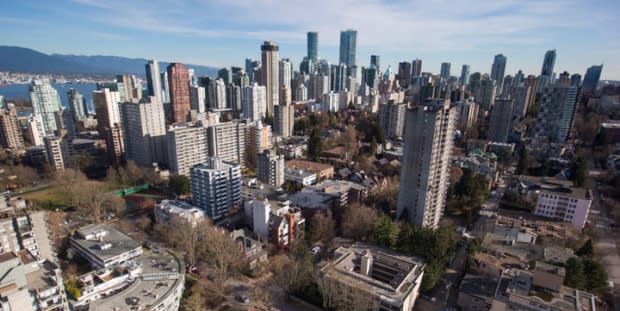Affordable rentals or market rate? Vancouver looks to rejig incentive program to reflect true prices
Vancouver's Rental 100 program is supposed to encourage developers to invest in purpose-built, affordable rental units but some city councilors are calling for the initiative to be scrapped — and arguing it's far from affordable.
Under the Rental 100 program, some of the "affordable" units listed have rents as high as $1,600 a month for a studio apartment.
"What we need to do is, first of all, reset the definition of affordability in our bylaws," said Green Party Coun. Adriane Carr.
Vancouver Mayor Kennedy Stewart said he agrees there are flaws in the current incentive program — but that doesn't mean the whole thing should be tossed aside.
"I would rather tweak the Rental 100 program to try to see how we can maximize real affordable housing out of it rather than stop it," Stewart told Stephen Quinn, the host of CBC's The Early Edition.

An incentive by any other name
Part of the problem is in the name, he said.
"What really bugs Vancouverites is when we officially label things as affordable and they're not," Stewart said. "What they are is market rental housing and we should just call it that."
Stewart said he has talked to city staff about changing the phrasing.
Changing market conditions
That doesn't get at the heart of the issue: a need for actual affordable housing in Vancouver. The rental incentive is part of that, according to Stewart. But the program, introduced in 2012, needs to be updated to reflect current conditions.
It was passed during a different time in the housing market: when condo developers were making about 15 per cent return whereas rental developers were making about five per cent back.
"The conditions have changed in the market now," Stewart said, citing the new tax measures to curb speculation.
"You can see that the higher-end housing is starting to drop off and it's less profitable for developers to build condos."
Increasingly, Stewart said, developers are coming to the city to find out about getting into the rental market.
Under the Rental 100 incentive, they get the development-cost levy waived if the unit will be a rental for 60 years.
While the rental incentive won't be scrapped any time soon, Stewart said city council is looking at adapting it.
"I do think we might want to bring in some housing economists to help us with this, which is essentially a tax rejigging," he said.
"In the city, we have about $400 billion worth of real estate and you don't want to mess with it unless you're sure about what you're doing."

